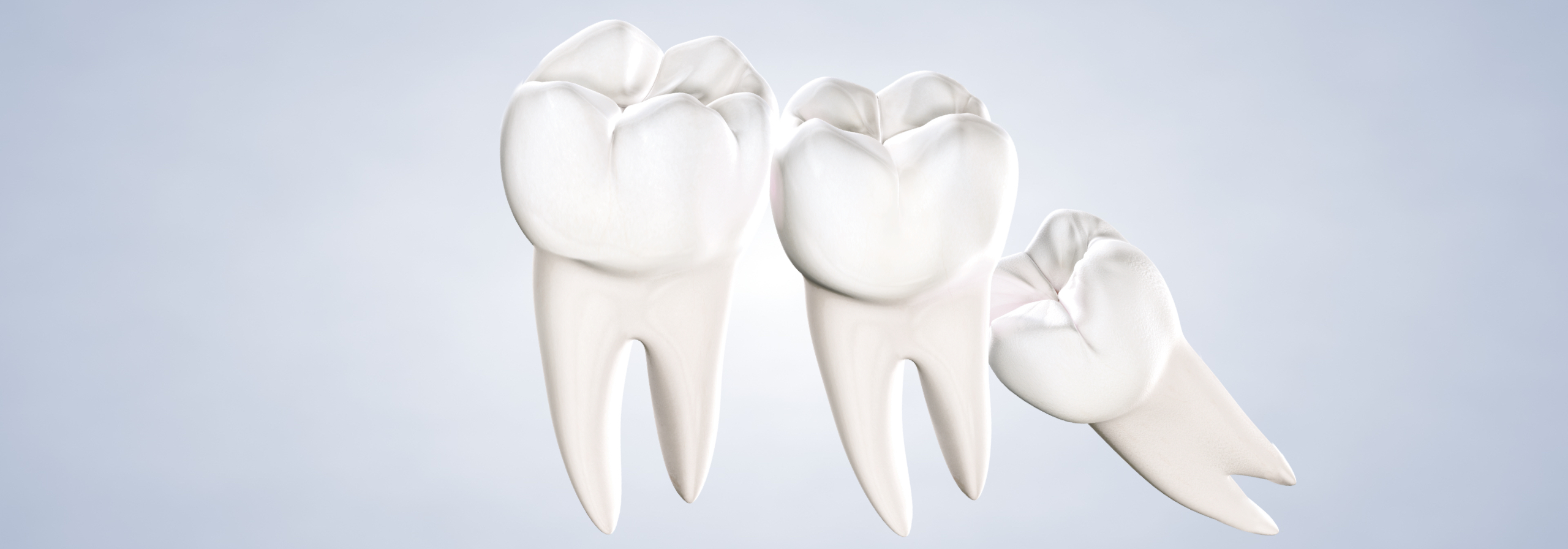
Having your wisdom teeth removed is a surgical procedure that many people undergo. There are instructions you should follow before and after your wisdom tooth removal to ensure a smooth and speedy recovery. Be sure to read our instructions for Before Wisdom Teeth Removal Surgery.
These general instructions are good guidelines to keep in mind if you plan on having your wisdom teeth removed. Your oral surgeon will provide specific instructions, which may include special rinses, medications, or extra steps for your individual needs. Always ask your doctor questions you have about treatment, and let him or her know your concerns. This will help you feel more informed and confident about your oral surgery procedure.
Your recovery time will vary depending on how many teeth you have removed and the complexity of your surgery. Many people return to their normal routines in just a few days following surgery, although it can take several weeks for the surgical sites to fully heal.
Immediately Following Surgery
- Do not touch or disturb the extraction sites.
- Take the prescribed pain medications as soon as you begin to feel discomfort. This will usually coincide with the local anesthetic wearing off.
- You have likely undergone IV sedation and will need an adult to drive you home and remain with you for 24 hours after surgery. Use caution when moving around, as you will likely still be under the effects of anesthesia. Focus on resting for the remainder of the day.
Bleeding
- Your surgeon placed gauze pads in the mouth to control bleeding. Keep them in your mouth for 30 minutes, then throw them away. You may be given more gauze pads to help manage bleeding at home.
- Slight bleeding, oozing, or red-colored saliva is normal. If you think you’re bleeding beyond what is expected, contact your doctor.
Swelling
- Swelling is normal and will usually peak around the third day following surgery.
- Place ice packs to the sides of your face where surgery was performed, only while you are awake. After about 36 hours, ice has no beneficial effect, and you may switch to moist heat to reduce swelling.
Pain
- For moderate pain, one or two tablets of Tylenol® may be taken every 3–4 hours, or ibuprofen (Motrin® or Advil®) two to four 200 mg tablets may be taken every 3–4 hours.
Your surgeon may prescribe prescription pain medication. - Ask your surgeon about EXPAREL®, the non-opioid pain relief option following wisdom tooth extraction. Many practices nationwide offer this alternative to narcotic pain medication.
- Your surgeon may prescribe prescription pain medication.
Diet
- Consume liquids until you’re comfortable switching to soft foods. Avoid anything hard, crunchy, or that could damage the surgical areas. Protein shakes, eggs, mashed potatoes, soft pasta, meatloaf, Jell-O®, and pudding are some examples.
- It is important that you do not use a straw or smoke for 1 week. The suction can dislodge the blood clot, exposing the nerves and bone underneath. This is called dry socket, and it is a very painful condition. Call your doctor if you suspect a dry socket at any point.
- Take fluids regularly to prevent dehydration and expedite recovery, and do not miss meals. Your body needs hydration and nutrition to heal.
Oral Hygiene
- Starting the day after surgery, rinse with warm salt water at least 5–6 times daily for 1 week.
- You may be given a special rinse to use after surgery, or an irrigation syringe to clean the surgical sites.
- Brush your teeth the night after surgery, but be gentle around the surgical areas.
Antibiotics
- Take antibiotics as directed to prevent infection.
Nausea and Vomiting
- Anesthesia may cause nausea and/or vomiting. Try sipping on tea, ginger ale, or water until the nausea subsides.
Other Complications
- Numbness of the lip, chin, or tongue is normal.
- Slight elevation of temperature immediately following surgery is not uncommon. Tylenol or ibuprofen can reduce the fever.
- Pain medications can make you dizzy. Sit for one minute prior to standing.
- You may feel hard projections in the mouth with your tongue. These are the bony walls that supported the tooth and will smooth out naturally. If not, they can be removed by your dentist or oral surgeon
- Keep lips moist with Vaseline® to prevent cracking.
- Sore throat or pain when swallowing is normal as the muscles have swollen. This will subside in 2-3 days.
- Jaw stiffness is normal and will resolve over time.
- Dissolvable sutures are placed to minimize bleeding and help healing. If they become dislodged, simply discard them. Others will dissolve on their own.
Sutures
By following the instructions outlined by your oral surgeon, you will have a faster, easier recovery. If you experience severe pain, bleeding, or other issues at any point during recovery, call your doctor. They will advise you on steps to take and if it is necessary to return to the office for evaluation.